When you visit Microsoft’s official download site from a Windows computer, you will not see the option to download Windows 10 ISO File. Instead, you will see the option to Download Windows Media Creation tool, which can be used to create Windows 10 ISO File on a USB Drive.
However, when you visit Microsoft’s download page using a MacBook or Chromebook, you will see the option to Download Windows 10 ISO File directly to the USB Drive.
Hence, the only way to Download Windows 10 ISO File directly to USB Drive is by using a Mac or by changing the User Agent for the web browser on your computer (2nd method as provided below in this guide).
1. Download Windows 10 ISO File Using Mac
The easiest way to download Windows 10 ISO File directly to a USB Drive is by visiting Microsoft’s download website on a MacBook or Chromebook.
1. Open the web browser on your MacBook or Chromebook and visit Microsoft’s ISO download site.
2. Once you are on Microsoft’s download site, select the Edition of Windows 10 that you want to download and click on Confirm.
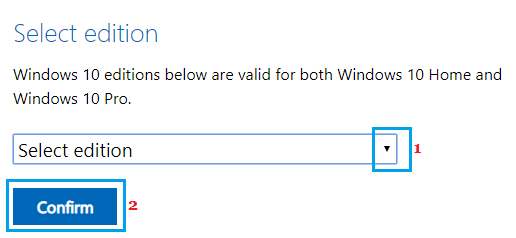
3. Select Language and click on Confirm.
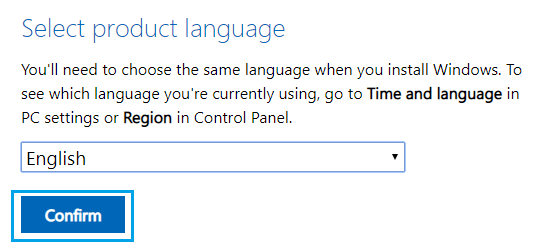
4. On the next screen, select 32-bit Download or 64-bit Download as required for your computer.
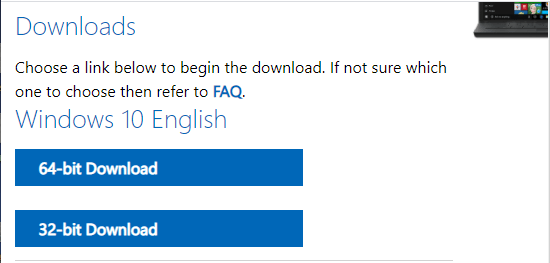
If you are not sure, you can check the bit version of your computer: How to Check if Your computer is 32 0r 64-bit.
5. When prompted, select USB Drive as the download location and click on Save.
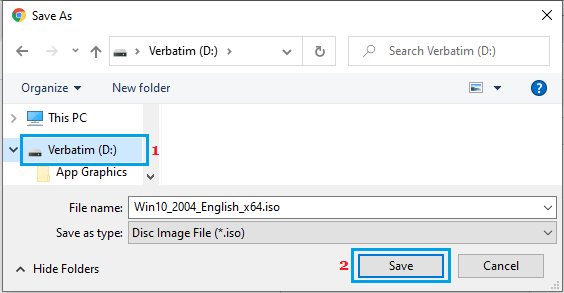
Note: The browser’s user agent will return back to normal as soon as you close and relaunch the web browser.
2. Download Windows 10 ISO File to USB Drive on Windows PC
If you do not have a MacBook or Chromebook, you can still download Windows ISO File directly to USB Drive by switching the web browser on your computer to a Non-Windows User Agent.
1. Open Google Chrome web browser on your computer and visit Microsoft’s ISO download site.
2. Click on 3-dots menu icon > hoover mouse over More Tools and click on Developer Tools.
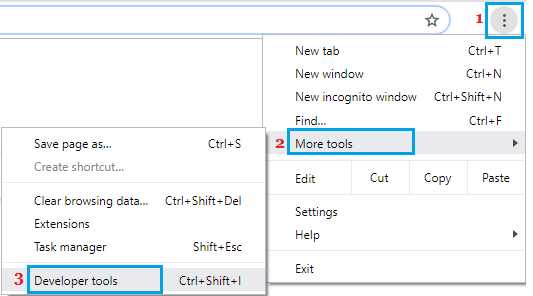
3. On Developer screen, click on the menu icon > hoover mouse over More Tools and click on Network Conditions.
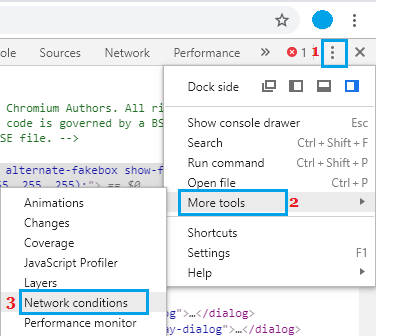
4. On Network conditions screen, uncheck Select Automatically option and click on the down-arrow next to Custom.
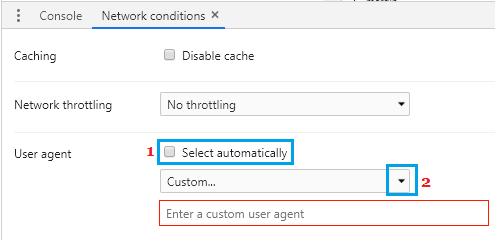
5. From the menu that appears, select Chrome – Mac as the User Agent and do not close the Developer Window.
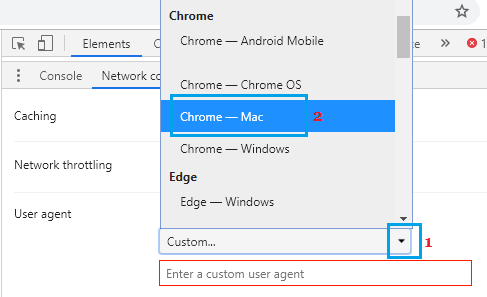
Note: You can select any Non-Windows User Agent.
6. After selecting User Agent, refresh the download page (Do not close Developer Tools) and you will see the option to Download ISO File.
7. Select the Edition of Windows that you want to download and click on Confirm.

8. Select Language and click on Confirm.

9. On the next screen, select either 32-bit Download or 64-bit Download to start the download.

Note: You might be able to Upgrade From 32-bit to 64-bit Windows 10
10. When prompted, select USB Drive as the destination for download and click on Save.

Note: The browser’s user agent will return back to normal as soon as you close Chrome’s developer tools.